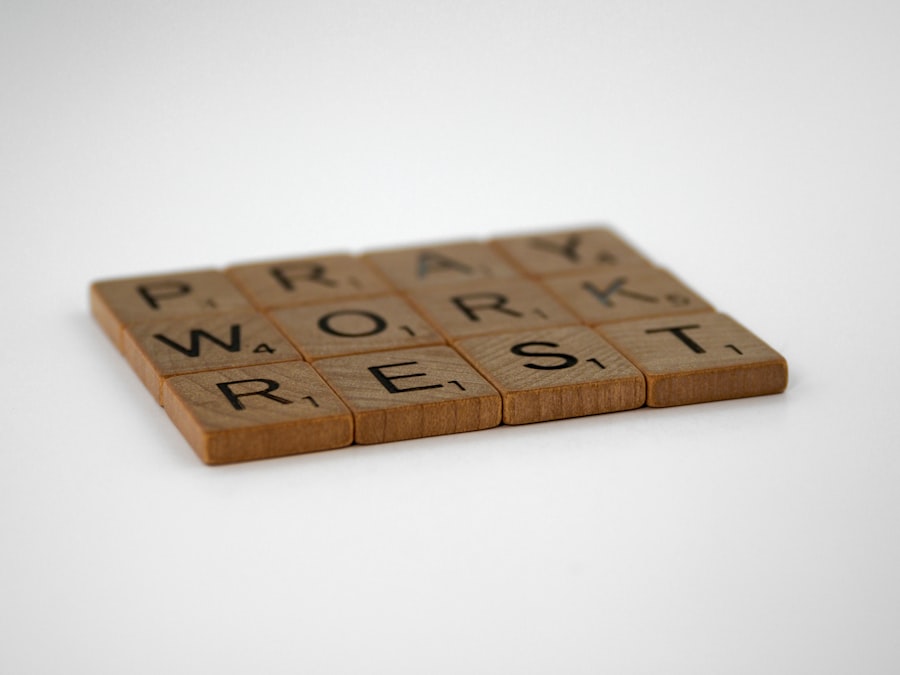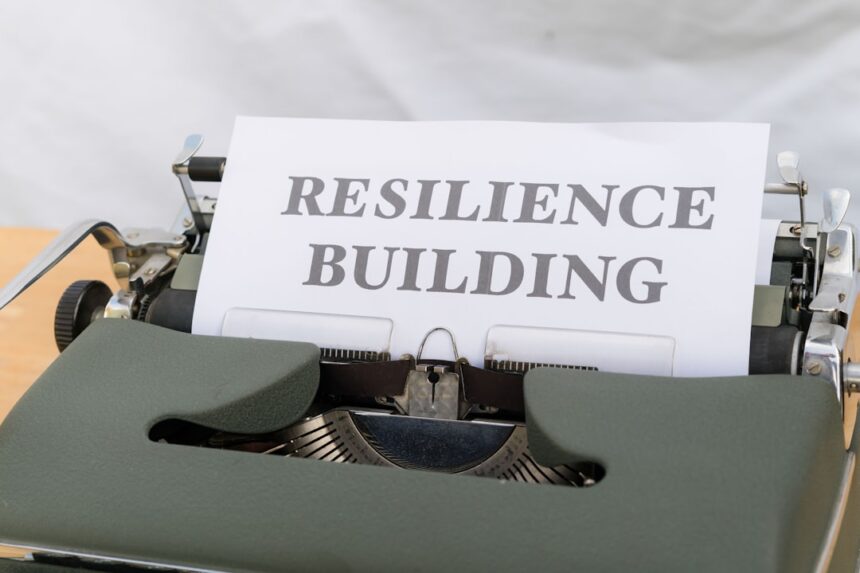When you think about the concept of self-trust, it’s essential to recognize how deeply it can be affected by experiences of abuse. Whether the abuse is emotional, physical, or psychological, it can leave lasting scars that undermine your ability to trust yourself. You may find that your instincts and judgments become clouded, leading to a pervasive sense of doubt.
This erosion of self-trust can manifest in various ways, from second-guessing your decisions to feeling unworthy of love and respect. Understanding this impact is the first step toward reclaiming your sense of self. Abuse can create a cycle of fear and uncertainty that makes it difficult for you to believe in your own capabilities.
You might have internalized negative messages from your abuser, leading you to question your worth and abilities. This internal dialogue can be incredibly damaging, as it reinforces feelings of inadequacy and self-doubt. Recognizing that these feelings stem from past experiences rather than your true self is crucial in beginning the journey toward healing and rebuilding trust in yourself.
Key Takeaways
- Abuse can have a significant impact on self-trust, leading to feelings of doubt and insecurity.
- Signs of self-trust erosion include constant self-doubt, difficulty making decisions, and feeling unworthy.
- Seeking professional help and support is crucial in rebuilding self-trust and overcoming the effects of abuse.
- Practicing self-compassion and self-care is essential for nurturing self-trust and rebuilding confidence.
- Setting boundaries and learning to say no are important steps in regaining self-trust and asserting personal autonomy.
Recognizing the Signs of Self-Trust Erosion
As you navigate through life, it’s important to be aware of the signs that indicate your self-trust may be eroding. You might notice that you frequently seek validation from others before making decisions, even those that seem trivial. This reliance on external approval can signal a lack of confidence in your own judgment.
Additionally, if you find yourself constantly apologizing or feeling guilty for asserting your needs, it may be a sign that your self-trust has been compromised. Another indicator could be a persistent feeling of anxiety or fear when faced with choices. You may feel paralyzed by indecision, worrying about making the “wrong” choice.
This fear can stem from past experiences where your decisions were undermined or dismissed, leading you to doubt your ability to choose wisely. By recognizing these signs, you can begin to address the underlying issues and work toward rebuilding your self-trust.
Seeking Professional Help and Support

If you find yourself struggling with self-trust due to past abuse, seeking professional help can be a transformative step. A therapist or counselor can provide a safe space for you to explore your feelings and experiences without judgment. They can help you unpack the layers of trauma that have contributed to your self-doubt and guide you in developing healthier coping mechanisms.
Engaging in therapy can also empower you to reclaim your narrative and foster a stronger sense of self. Support groups can also be invaluable in this journey. Connecting with others who have faced similar challenges can help you feel less isolated in your experiences.
Sharing your story and hearing others’ journeys can provide insights and encouragement as you work on rebuilding your self-trust. Remember, seeking help is not a sign of weakness; rather, it is a courageous step toward healing and growth.
Practicing Self-Compassion and Self-Care
| Metrics | Results |
|---|---|
| Number of days practicing self-compassion | 30 days |
| Hours of sleep per night | 7 hours |
| Minutes of meditation per day | 15 minutes |
| Number of self-care activities per week | 5 activities |
As you work on rebuilding self-trust, practicing self-compassion becomes essential. It’s important to treat yourself with the same kindness and understanding that you would offer a friend in a similar situation. Acknowledge that healing takes time and that it’s okay to have setbacks along the way.
By cultivating a compassionate inner dialogue, you can begin to counteract the negative beliefs that have taken root due to past abuse. Incorporating self-care into your routine is another vital aspect of nurturing self-trust. Engaging in activities that bring you joy and relaxation can help reinforce a positive relationship with yourself.
Whether it’s taking a long walk in nature, indulging in a favorite hobby, or simply allowing yourself time to rest, these moments of self-care serve as reminders that you are worthy of love and attention. By prioritizing your well-being, you send a powerful message to yourself: that you are deserving of care and respect.
Setting Boundaries and Saying No
Establishing boundaries is a crucial step in rebuilding self-trust after experiencing abuse. You may have been conditioned to prioritize others’ needs over your own, leading to feelings of resentment and burnout. Learning to say no is an empowering act that reinforces your right to make choices that align with your values and well-being.
It’s important to recognize that setting boundaries is not selfish; rather, it is an essential aspect of maintaining healthy relationships and protecting your mental health. When you begin to assert your boundaries, you may initially feel uncomfortable or guilty.
Start small by setting boundaries in low-stakes situations, gradually working up to more significant areas of your life. Each time you assert yourself, you reinforce your sense of agency and autonomy, which are vital components of rebuilding self-trust.
Challenging Negative Self-Talk and Beliefs

Negative self-talk can be one of the most insidious barriers to rebuilding self-trust. You may find yourself caught in a cycle of harsh criticism and self-doubt, often echoing the voices of past abusers. To combat this negativity, it’s essential to challenge these thoughts actively.
When you catch yourself engaging in negative self-talk, pause and ask yourself whether these beliefs are rooted in reality or if they stem from past trauma. Reframing these thoughts can be a powerful tool in rebuilding self-trust. Instead of saying, “I always mess things up,” try shifting the narrative to “I am learning and growing from my experiences.” This shift not only helps counteract negative beliefs but also fosters a more compassionate view of yourself as someone who is capable of change and growth.
By consistently challenging negative thoughts, you create space for more positive affirmations that reinforce your self-worth.
Reflecting on Personal Values and Goals
Taking time to reflect on your personal values and goals is an essential part of rebuilding self-trust. When you align your actions with what truly matters to you, it becomes easier to trust yourself and your decisions. Consider what principles guide your life—whether it’s honesty, compassion, creativity, or something else entirely—and how these values influence your choices.
Setting specific goals based on these values can also help reinforce your sense of direction and purpose. As you work toward achieving these goals, celebrate each step along the way, no matter how small. This process not only builds confidence but also strengthens your belief in your ability to make choices that align with who you are at your core.
Engaging in Activities That Foster Self-Trust
Engaging in activities that promote self-trust can significantly enhance your journey toward healing. Consider exploring new hobbies or interests that challenge you while also allowing for personal expression. Whether it’s taking up painting, joining a dance class, or learning a new language, these activities can help you reconnect with yourself and build confidence in your abilities.
Additionally, mindfulness practices such as meditation or journaling can provide valuable insights into your thoughts and feelings. These practices encourage self-reflection and help you cultivate a deeper understanding of yourself. By dedicating time to activities that foster self-trust, you create opportunities for growth and empowerment.
Building a Supportive Network of Friends and Family
Surrounding yourself with supportive friends and family members is crucial as you work on rebuilding self-trust. These individuals can provide encouragement, validation, and understanding as you navigate the complexities of healing from abuse. It’s important to seek out relationships that uplift you rather than those that reinforce negative beliefs about yourself.
Open communication with your support network is key. Share your journey with them—your struggles, triumphs, and everything in between. By allowing them into your process, you create an environment where vulnerability is welcomed, fostering deeper connections built on trust and understanding.
Embracing Vulnerability and Authenticity
Embracing vulnerability is often seen as a strength rather than a weakness; it allows you to connect more deeply with yourself and others. When you allow yourself to be authentic—sharing your fears, hopes, and dreams—you create space for genuine connections that reinforce trust in yourself and those around you. Vulnerability can be daunting, especially if past experiences have taught you to guard yourself against potential hurt.
However, by taking small steps toward vulnerability—such as sharing your thoughts with trusted friends or expressing your feelings openly—you begin to dismantle the walls built by past trauma. This process not only fosters deeper relationships but also reinforces the belief that being true to yourself is both safe and rewarding.
Celebrating Small Victories and Progress
As you embark on this journey toward rebuilding self-trust, it’s essential to celebrate small victories along the way. Acknowledging even the tiniest steps forward can boost your confidence and reinforce positive changes in your life. Whether it’s successfully setting a boundary or challenging negative self-talk for the first time, each achievement deserves recognition.
Creating a ritual for celebrating these victories—such as journaling about them or sharing them with supportive friends—can help solidify their importance in your healing journey. By focusing on progress rather than perfection, you cultivate an attitude of gratitude toward yourself for the efforts you’re making toward reclaiming trust in who you are. In conclusion, rebuilding self-trust after experiencing abuse is a multifaceted journey that requires patience, compassion, and commitment.
By understanding the impact of abuse on self-trust, recognizing signs of erosion, seeking support, practicing self-care, setting boundaries, challenging negative beliefs, reflecting on values, engaging in empowering activities, building supportive relationships, embracing vulnerability, and celebrating progress, you pave the way for profound healing and personal growth. Remember that this journey is uniquely yours; honor each step along the way as you reclaim the trust within yourself.
Rebuilding self-trust after experiencing abuse can be a challenging journey, but it is a crucial step towards healing and personal growth. One effective approach is to engage in self-reflection and mindfulness practices, which can help individuals reconnect with their inner selves and regain confidence in their own judgment. Additionally, seeking support from a therapist or support group can provide a safe space to explore emotions and develop coping strategies. For more insights on this topic, you can read a related article on the Unplugged Psych website. Visit Unplugged Psych to explore resources and guidance on rebuilding self-trust and other mental health topics.
WATCH THIS! 🧠 The 11 Manipulation Tactics That Trap Smart People
FAQs
What is self trust?
Self trust is the belief in one’s own abilities, judgment, and integrity. It is the confidence in oneself to make decisions and take actions that align with one’s values and goals.
What is abuse?
Abuse refers to any behavior that is used to gain power and control over another person. This can include physical, emotional, psychological, or sexual abuse.
How does abuse affect self trust?
Abuse can erode a person’s self trust by undermining their sense of worth, causing them to doubt their own judgment, and creating feelings of shame and guilt.
What are some strategies for rebuilding self trust after abuse?
Some strategies for rebuilding self trust after abuse include seeking therapy, practicing self-compassion, setting boundaries, surrounding oneself with supportive people, and engaging in self-care activities.
Why is rebuilding self trust important after abuse?
Rebuilding self trust is important after abuse because it allows individuals to regain a sense of agency, confidence, and autonomy in their lives. It can also help them establish healthier relationships and make decisions that align with their values and goals.




